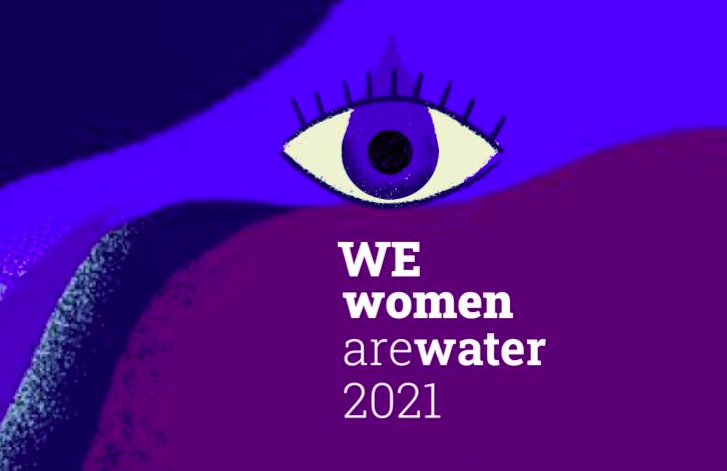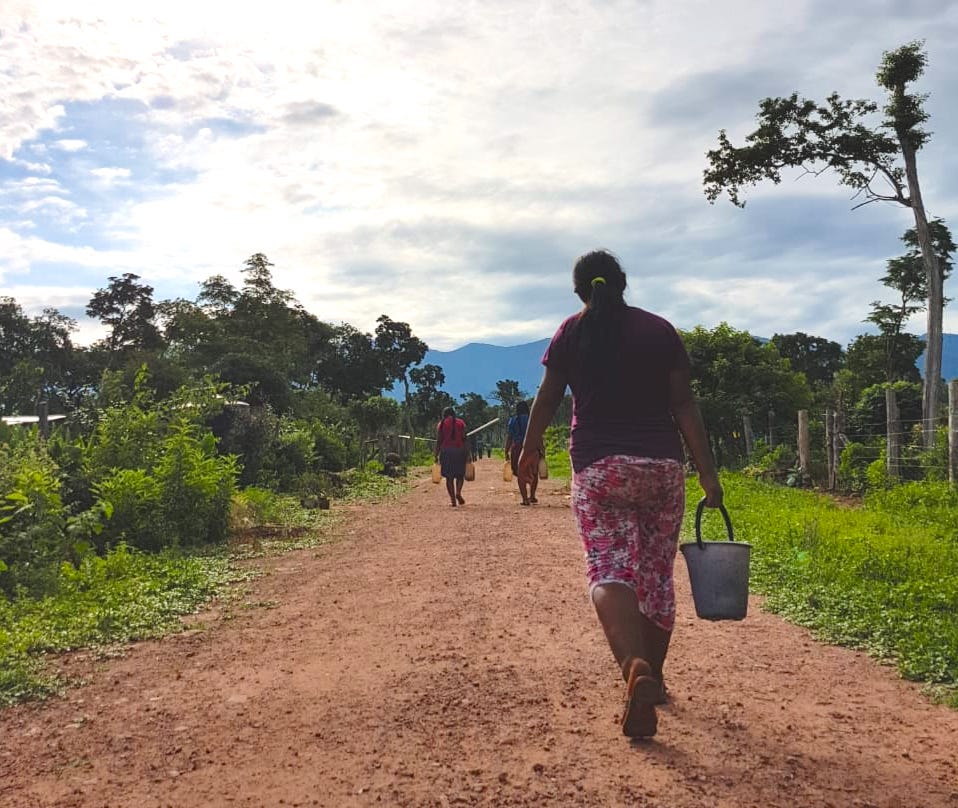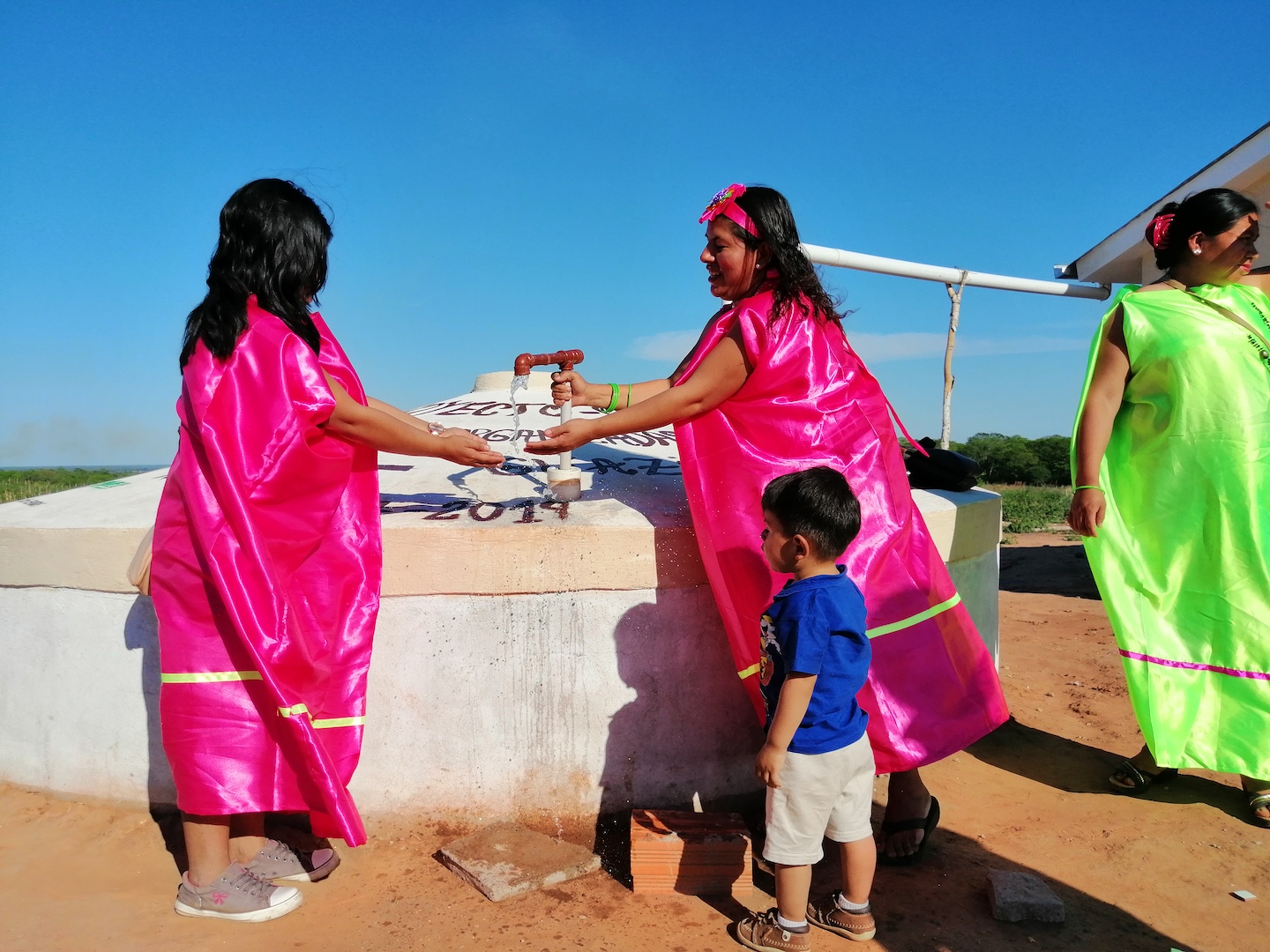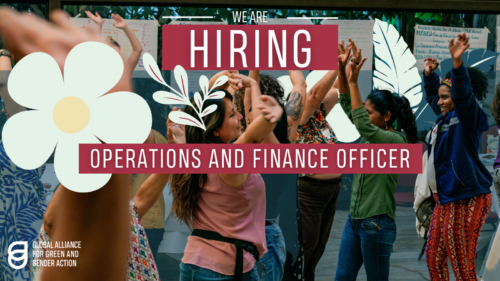The women of the Bolivian Chaco propose municipal laws to address water crisis

Rural Bolivia is inhabited primarily by Indigenous peoples with regions of hydrocarbon development often overlapping with Indigenous lands. Indigenous peoples in the country are facing intensifying resource extraction in their territories, a process that degrades their ecosystems while undermining their territorial rights and access to natural resources.
The Bolivian Gran Chaco is a region in the southeast that is characterized by dry forest transitioning into scrub forest, where extreme temperatures, prolonged drought and water scarcity are the norm. The land in the Gran Chaco produces more than 60 percent of the gas that Bolivia exports, which is the country’s biggest source of income. As a result, the Bolivian government has often chosen to put natural gas and oil extraction above the protection of Indigenous people and their land in one of the countries most vulnerable to climate change.

In times of drought, livestock and crops die due to lack of water which in turn affects the livelihoods of communities in the Gran Chaco. Climate change-related impacts of rising temperatures and longer dry seasons are only making it worse, while hydrocarbon exploitation is contaminating and extracting communities’ water sources. The traditional division of housework based on gender means that women are the ones to carry water over long distances on top of their everyday household and community tasks, creating a double or triple workday for women of the community.
The regional, departmental and municipal governments of the Gran Chaco are rich in economic resources, but instead of prioritizing policies to address the water crisis that greatly affects Indigenous and rural families, their approach is one of exploitation; No policies exist to limit or regulate hydrocarbon exploitation nor are there policies regarding the use, preservation, management and conservation of water sources. In times of extreme drought, the state’s response is more reactive than preventative.
Concerned by the ways that water contamination and scarcity disproportionately affects them as women, “campesina” rural working women, Indigenous women and women from urban working-class neighborhoods of the area have come together to work on municipal proposals for a risk management plan. The plan follows a preventive approach and was developed with the participation of civil society. The women sent the proposal to the authorities, who allocated budget for one or two aspects of the plan without fully taking it on themselves.

The group of women also learned about rainwater harvesting systems in the American Chaco region and brought this idea to Bolivia as a way to store water during drought. Based on this experience, the women worked on a municipal policy proposal to respond to the COVID-19 crisis which gave them an opportunity to advance their water agenda. The proposal outlined the provision of rainwater harvesting systems per family so they could maintain their family gardens and the planting of trees. The women also opened up local, departmental, national and regional spaces for debate and advocacy to respond to the water crisis and plan joint actions.
The women continue to work on agendas aimed at consolidating full political participation with parity and free from harassment and political violence; Securing economic autonomy, access to resources, agro-ecological production, recognition of care work and equal care policies; addressing structural gender-based violence, with autonomy over women’s bodies, prevention and access to justice; and developing programs that facilitate adaptation to climate change with alternatives for subsistence and harmonization with ecosystems, sustainable productive systems and eradication of extreme poverty.
This group of women environmental defenders is supported by CCIMCAT, who is part of the GAGGA network.

We Are Hiring: Operations and Finance Officer!
DEADLINE EXTENDED! Are you passionate about ensuring efficient financial management and operational excellence to support transformative work in climate, environmental,…

We Are Hiring: Donor Engagement Officer!
DEADLINE EXTENDED! Are you passionate about cultivating relationships and securing funding to support transformative work in climate, environmental, and gender…

Welcoming Anamika Dutt As GAGGA’s Planning, Monitoring, Evaluation & Learning (PMEL) Officer!
Anamika Dutt is a feminist MEL practitioner from India. Anamika believes that stories of change and impact are best heard…
Subscribe to our newsletter
Sign up and keep up to date with our network's collective fight for a gender and environmentally just world.
